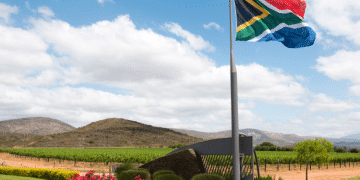South Africa’s Startup Ecosystem: A Masterclass in Resilience During Global Funding Winter
South Africa’s Remarkable Performance Amid Global Downturn
South Africa’s startup ecosystem has demonstrated remarkable resiliency amidst the global funding downturn.
Emerging as the most resilient among the top four African markets, this ecosystem has thrived despite a 34% year-over-year (YoY) decline in funding.
Here, we delve into what sets South Africa apart and how its startups have managed to secure funding in challenging times.
South Africa’s Resilience in Numbers
From Q1 2023 to Q1 2024, at least five South African startups, including notable names like Planet42 and Carry1st, successfully raised follow-on funding rounds.
This accomplishment is particularly impressive given the overall downtrend in global venture capital investments.
Raising subsequent rounds highlights the trust and confidence investors have in these startups, driven by their robust business models and sound fundamentals.
Rising Valuations Amidst Economic Challenges
One of the standout accomplishments of the South African startup ecosystem in 2023 has been its ability to increase average valuations.
South Africa held the distinction of being the only sub-Saharan African country to achieve this milestone, making it a bright spot in an otherwise gloomy economic landscape.
This indicates that investors recognize the intrinsic value and potential for growth in South African startups, even during a funding winter.
| Scenario | Before | After (Current Situation) |
|---|---|---|
| 🏢 Business Culture | Weak foundations, high leverage | Strong, sustainable, and capital-efficient startups with sensible valuations |
| 📊 Macroeconomic Stability | High inflation and economic volatility | Lower inflation rate (6.0%) and stable currency with minimal devaluation (8% against USD) |
| 💸 Institutional Investment | Limited access to capital | Strong support from local banks, pension funds, and family offices, with 11% of private equity investments in technology |
Investor Confidence & Returns
The confidence investors have in South African startups is reflected in the impressive returns generated.
In 2023, the country witnessed exits that offered a 3.8x return multiple for investors.
This positive outcome is a significant motivation for investors to continue their support, either directly through startups or via VC funds.
South Africa’s local investment landscape has also evolved, with a notable increase in capital flows from traditional finance sectors into the tech ecosystem.
Meanwhile, the country has shown resilience not just in raising capital but in the rapid growth of these backed companies, such as Carry1st and Planet42, which have already made significant strides in their respective fields.
As we move forward, it’s evident that South Africa’s stable macroeconomic environment and strong business fundamentals will continue to support its startup ecosystem.
However, the prolonged funding shortages present ongoing challenges that startups must navigate with unwavering tenacity and adaptability.
The Foundation of South African Startup Success
Building Robust, Sustainable, and Capital-Efficient Businesses
South Africa’s startup ecosystem sets itself apart by emphasizing robust, sustainable, and capital-efficient business models.
This focus on strong business fundamentals has been crucial in building resilience within the ecosystem amid the global funding winter.
Startups in South Africa prioritize long-term sustainability over rapid, high-risk growth, ensuring that they build a solid foundation before scaling up.
For instance, instead of burning through cash rapidly to achieve immediate gains, South African startups like Planet42 and Carry1st focus on optimizing their resources.
This approach not only conserves capital but also allows these companies to navigate tough economic conditions with greater stability.
Sensible Valuations Based on Real Unit Economics
Another key aspect of the success attributed to South African startups is their realistic approach to valuations.
Unlike the previously inflated valuations seen in other markets, South African startups maintain sensible valuations grounded in real unit economics.
This approach fosters investor confidence, as valuations reflect genuine business potential rather than speculative optimism.
These sensible valuations have proven to be a strategic advantage during the funding downturn. By valuing themselves appropriately, South African startups are able to attract investment even in a cautious market.
This has been evidenced by the follow-on funding rounds secured by several startups between Q1 2023 and Q1 2024, despite a broader decline in equity funding.
Building Solid Fundamentals Before Seeking VC Funding
Lastly, the risk-averse nature of the South African market has compelled startups to build solid fundamentals before seeking venture capital (VC) funding.
This risk aversion has turned out to be a blessing in disguise, pushing startups to develop robust market strategies and sound business operations.
The emphasis on strong fundamentals means that South African startups are typically well-prepared by the time they approach VC firms.
Their proven market potential and mature business practices make them attractive investment opportunities, even in a climate of reduced VC inflows.
This disciplined approach to business development has helped shield the ecosystem from the volatility of the global funding landscape.
South Africa’s approach to building strong, sustainable, and economically sound startups lays a critical foundation for their success.
This deeply ingrained business culture has contributed significantly to the ecosystem’s resilience, positioning South African startups favorably in the African and global markets.
Next, we will explore how macroeconomic advantages have further supported the South African startup ecosystem.

Macroeconomic Advantages Supporting the Ecosystem
South Africa’s startup ecosystem has not only withstood the global funding downturn but also outperformed its African peers thanks to favorable macroeconomic conditions.
These advantages have solidified the ecosystem’s resilience and appeal to investors.
Lower Inflation Rate
One of the standout factors is South Africa’s inflation rate, which has been significantly lower compared to other African nations.
In 2023, South Africa maintained an inflation rate of 6.0%, while Nigeria struggled with a whopping 24.5%.
This lower inflation rate has helped stabilize purchasing power and consumer spending, creating a more predictable business environment for startups.
Currency Stability
Additionally, the South African Rand (ZAR) has demonstrated more stability compared to currencies in other leading African markets.
In 2023, the Rand devalued by only 8% against the USD, whereas the Kenyan Shilling declined by 20%.
Such relative stability in the currency minimizes the risk of fluctuating costs for startups, allowing for better financial planning and investor confidence.
Strong Institutional Investment Support
Another essential pillar of support comes from strong institutional investors within South Africa.
Local banks, pension funds, and family offices have increasingly directed funds towards venture capital, providing much-needed investment in technology companies.
According to the Southern Africa Venture Capital Association (SAVCA), 11% of private equity investments in South Africa are directed toward technology, which is the highest investment percentage of any sector in the country.
As Clive Butkow from Conducive Capital mentioned, raising capital internally has enabled the South African ecosystem to weather the global funding decline.
This internal investment has fostered a sense of stability and sustainability within the ecosystem.
For instance, impressive funding rounds by startups such as Planet42 and Carry1st have showcased local investor confidence.
This solid base of local institutional support, coupled with strong macroeconomic fundamentals, provides a conducive environment for startups to operate and grow.
It ensures that even amidst global uncertainties, South Africa’s startup ecosystem can stay resilient.
These macroeconomic advantages are vital components in maintaining and enhancing the country’s startup ecosystem.
As we look forward, it becomes clear that these elements will continue to play a crucial role in sustaining the robustness and appeal of South African startups.
Local Investment Landscape Evolution
Private Equity Infusions in Technology
South Africa’s investment landscape has seen a notable evolution, with a significant increase in private equity interest directed toward technology companies.
A striking 11% of private equity investments are now funneled into the tech sector, showcasing a growing belief in the transformative power of technology.
This considerable allocation highlights the confidence that investors have in the burgeoning tech ecosystem and the robust returns it promises.
Boost from Banks, Pension Funds, and Family Offices
Adding to this investor confidence is the rise in capital from traditional financial institutions like banks and pension funds, as well as family offices, into venture capital (VC) funds.
Historically cautious, these entities have increasingly found value in investing in startups, unveiling a new dimension of support that was previously limited.
This diversification of capital sources not only enhances the financial backbone of startups but also provides a layer of stability in what is often a volatile funding environment.
Lucrative Exits and Investor Returns
One of the most compelling aspects of South Africa’s investment landscape is the impressive returns generated from startup exits.
Notable examples include Carry1st, a mobile game publisher, and Planet42, a rent-to-buy car subscription service.
Both companies have recorded rapid revenue growth and have collectively raised hundreds of millions in venture and debt funding. T
hese successful exits have generated a 3.8x return multiple for investors TechCabal and include substantial exits altogether amounting to R318 million (~$17 million).
Catalysts for Further Investment
Such remarkable returns inevitably attract further investment, creating a self-sustaining cycle of growth and profitability.
The financial success of these exits reinforces the viability and attractiveness of the South African tech ecosystem to both local and international investors.
This ongoing influx of capital from diverse sources ensures a steady flow of funds that startups can rely on, even in times of broader economic uncertainty.
This fundamental transformation in the local investment landscape underpins the broader resilience of South Africa’s startup ecosystem.
As we continue to explore the various facets of this dynamic environment, the focus will shift towards how these foundational strengths are likely to influence the future trajectories of South African startups.
Future Outlook and Sustainability
South Africa’s startup ecosystem has proven its resilience and strength, even amid a challenging global funding environment.
While the future holds uncertainties, there are several positive indicators suggesting that South Africa’s startups can continue to thrive.
Stable Macroeconomic Fundamentals
South Africa’s relatively stable macroeconomic indicators, such as a lower inflation rate of 6.0% and only an 8% currency devaluation against the USD, have played a significant role in supporting the startup ecosystem.
These factors have provided a level of financial predictability and security that many other African countries lack.
For instance, Nigeria experienced a much higher inflation rate of 24.5% in 2023, making South Africa’s economic stability more attractive to investors.
Attracting Foreign Capital
Despite the global funding winter, South Africa’s low-risk profile continues to attract foreign capital. Investors are often drawn to markets with less relative uncertainty, and South Africa offers that through its stable macroeconomic environment.
The strong institutional investment support from local banks, pension funds, and family offices further bolsters investor confidence.
These investors have a vested interest in the sustained growth and stability of the ecosystem, ensuring continued capital inflows.
Challenges with Funding Shortages
However, the prolonged global funding downturn presents challenges for South African startups.
While the ecosystem has managed to secure some follow-on funding rounds, the overall 34% year-over-year decline in total equity funding in 2023 highlights the difficulties ahead.
Startups may face issues related to dilution and cap table complexities, potentially leading to cash flow crunches.
Companies will need to remain adaptable and resourceful to navigate these financial hurdles.
Long-Term Sustainability
The emphasis on building robust, sustainable, and capital-efficient businesses will be crucial for long-term sustainability.
Startups that have developed solid fundamentals based on real unit economics are well-positioned to weather the storm.
The ability to demonstrate growth and profitability will continue to be key factors in attracting both local and foreign investments.
Looking forward, the South African startup ecosystem is poised for continued resilience due to its strong economic foundations and investor confidence.
Though challenges remain, the proactive approach of startups and the supportive investment landscape will likely enable the ecosystem to sustain its momentum and success.





